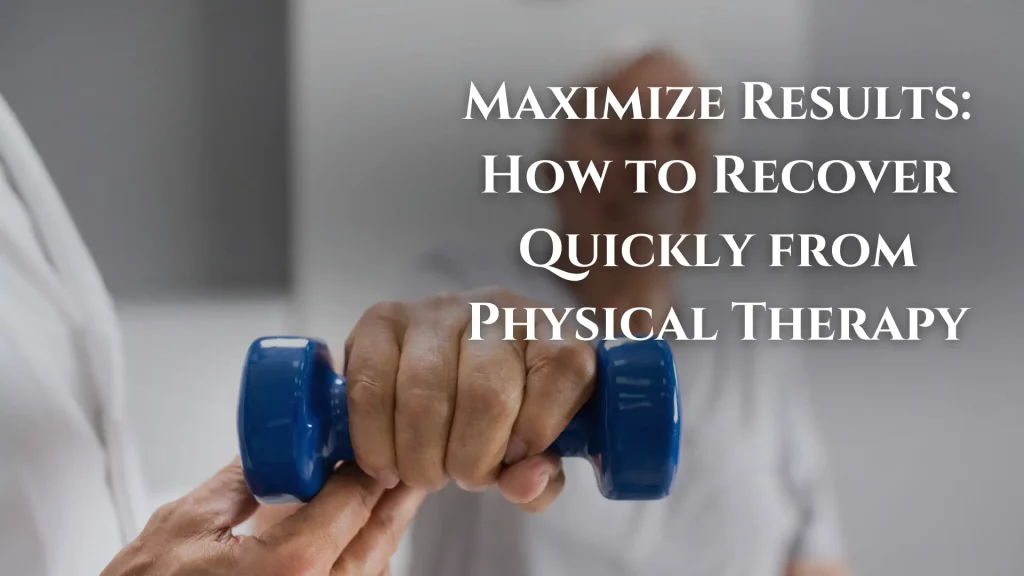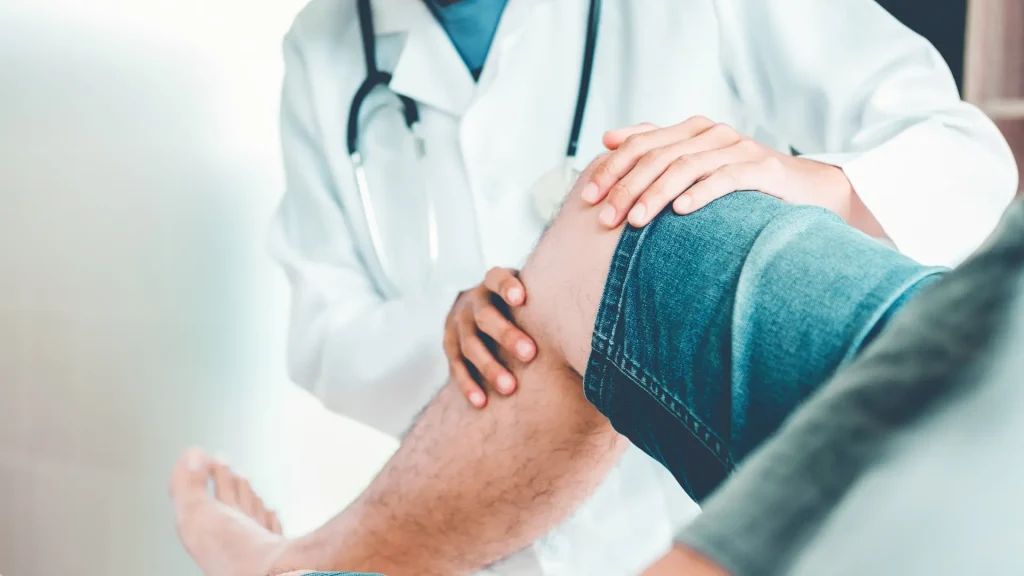
Anyone who has suffered an injury or illness likely has questions about what comes next. First and foremost: How quickly can I recover and return to my feet? The answer to this question varies depending on the injury, physical health, and other factors. Still, regardless of their circumstances, many people find adding physical therapy to their health and wellness routine beneficial. It can help them achieve faster results—an optimal healing timeline. For many patients, recovering from physical therapy faster comes down to consistency, following their therapist’s guidance closely, and making healthy lifestyle choices.
Understanding the recovery process and how utilizing physical therapy can help you achieve more significant results and a faster healing timeline can help keep you invested and motivated in physical therapy.
Understanding the Recovery Process in Physical Therapy
Physical therapy was a specialty that focused on helping patients recover physically from injuries or illnesses. It does this by assisting them in improving their strength, flexibility, and mobility. Physical therapy also improves patients’ range of motion and mobility and helps to restore functionality. It can be beneficial after surgery, an injury, or an illness.
Physical therapy focuses on exercises, stretches, and body movements to assess the physical condition of soft tissues such as muscles, tendons, ligaments, and joints. A physical therapist is a trained medical provider who customizes physical therapy routines or plans using specific, targeted exercises to help the body perform physical movements and retrain the body.
It can be a vital tool that aids in the recovery process by:
- Managing Pain – Physical therapy can be an effective pain management tool, providing pain relief without the need to rely on potentially dangerous medications. A therapist can target the source of pain and discomfort and help a patient improve long-term comfort and range of motion.
- Restoring Functionality – Surgery, illness, or injuries can limit mobility and functionality, leaving people struggling to complete daily tasks. Physical therapy helps patients regain range of motion, strength, and flexibility. It does so through customized exercises that gradually build muscle strength and joint stability.
- Supporting Soft Tissue and Neurological Recovery – Physical therapy helps retrain muscles, soft tissue structures, and nerves, promoting functional independence after an injury or illness. It can be beneficial for patients with conditions that impact mobility, like stroke, spinal cord injuries, or Parkinson’s disease.
- Preventing Additional Injuries – A trained therapist assesses movement patterns, teaches proper body mechanics to reduce re-injury risk, and helps individuals learn how to move safely during daily activities and sports.
Please read more about Physical Therapy Painful here: Is Physical Therapy Painful?
Tips for Recovering from Physical Therapy Faster

Physical therapy and rehabilitation following an illness, physical therapy injury prevention, or a surgical procedure takes time and effort. Recovery doesn’t happen overnight, and engaging in intensive physical therapy can be challenging. Many patients feel sore and tired and can quickly become overwhelmed by the scope of their therapy sessions.
Recovering from Physical Therapy Sessions
However, following a few rehab recovery tips can boost physical therapy outcomes and reduce soreness after therapy. Understanding the connection between physical therapy and how it leads to faster recovery can also give you confidence. Targeted exercises and expert guidance are designed to restore function and speed up healing.
Here are some tips for recovering from physical therapy sessions and healing faster:
- Follow the Guidance of Your Physical Therapist – There are no shortcuts. If you want to see results, you need to put in the hard work. Your physical therapist customizes plans for your body and specific conditions and abilities. Attend all appointments and diligently follow prescribed home exercises. Furthermore, f you experience pain or discomfort, communicate with your therapist.
- Exercise at Home – Treatment doesn’t just happen in the office. You’ll need to put in additional work at home to reap the maximum benefits of physical therapy. Stay consistent with at-home exercise provided by your physical therapist.
- Focus on Hydration and Nutrition for Rehab Recovery – Your body needs fuel to help it recover, and protein is vital for muscle repair and soft tissue healing. Ask about a high-protein diet packed with other essential vitamins and nutrients to support a healthy recovery. Don’t forget to stay hydrated and drink plenty of water. Additionally, water helps promote faster healing, supports joint health, and even reduces soreness after intense sessions.
- Go to Bed – Proper nutrition and hydration can help give your body what it needs to heal, but the healing process often occurs while you are asleep. Sleep is when your body takes the time to repair and rebuild. Focus on getting plenty of rest to speed up the recovery process.
- Stay Positive – Be patient and kind to yourself. Set small goals, celebrate victories, and reward yourself. A positive mindset can help keep you on track and improve your physical gains.
Start Your Physical Therapy Journey at AllCare Health & Pain
At AllCare Health & Pain, we prioritize your needs and want to work with you to find a personalized physical therapy solution in our New Jersey office that meets your specific goals and addresses your concerns. Our team is here to help you on your physical therapy journey. Contact our New Jersey office online or call us at 201-386-9800 to schedule an appointment.
Related Post
Can Weather Changes Make Chronic Pain Worse? Understanding the Link

